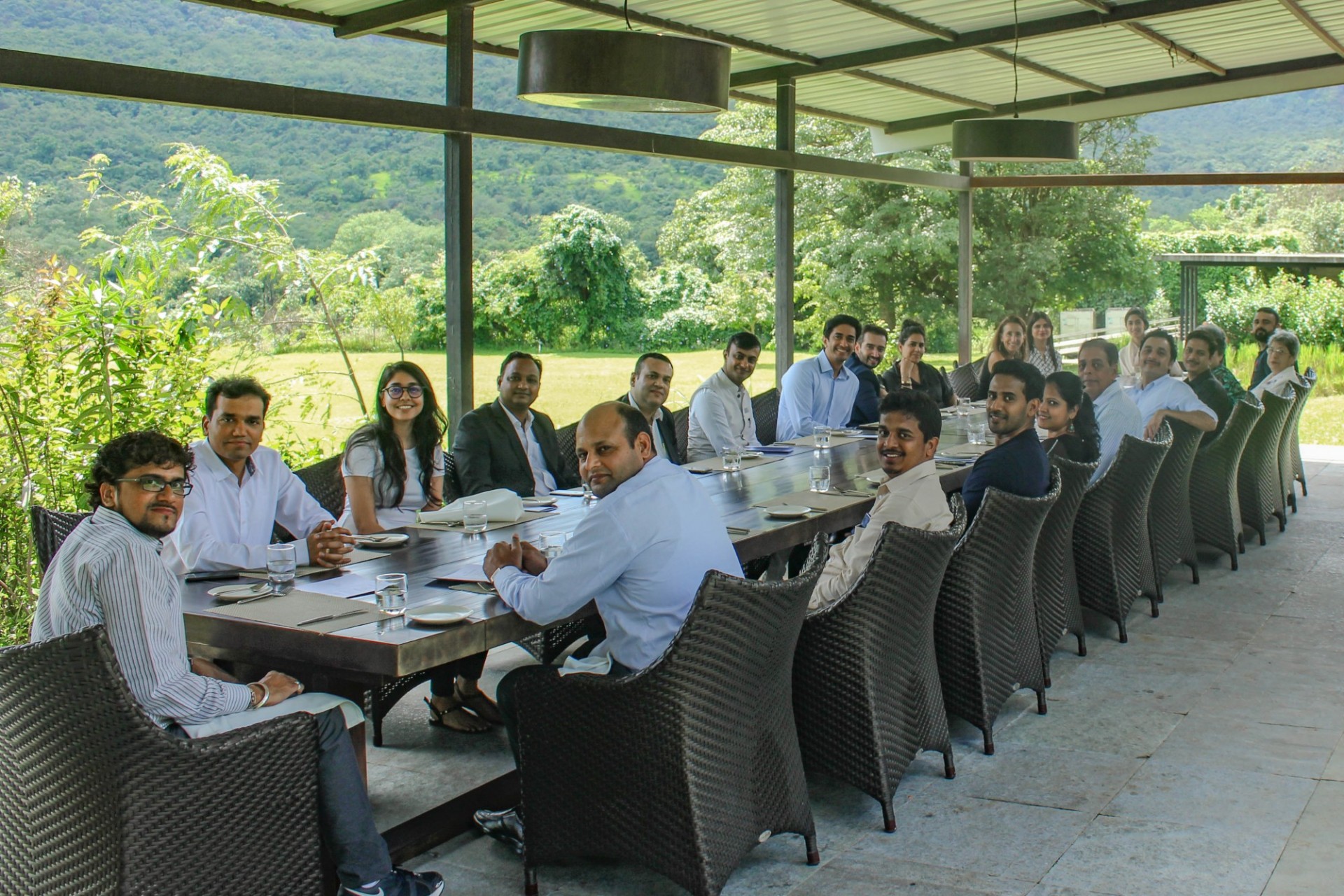Deliberating the Gut Microbiome

Microbial matter in the gut has been linked to a host of conditions and diseases, including diabetes, cancer, anxiety disorders, and infectious diseases. It also impacts individual and community responses to medication and treatment.
To explore the gut microbiome as a critical area of health in India, Columbia Global Centers | Mumbai organized a seminar in partnership with the Shillim Institute on September 29-30, 2019 at the Hilton Shillim Estate, located in the Western Ghats region of Maharashtra. The seminar brought together researchers and practitioners from the fields of microbiology, medicine, nutrition, and ecology to share knowledge about the latest trends and initiatives in microbiome research and application, and to create a road map for future collaboration.
The opening session addressed the status of research in the microbiome field, shedding light on diverse methods of classification and data collection, and pointing to the need for moving beyond disciplinary siloes and conventional taxa to address prevailing data gaps. Dr. Nerges Mistry, a microbiologist and immunologist from The Foundation for Medical Research in Mumbai (FMR), emphasized the importance of exploring links between the gut intestine and the respiratory tract, and not treating them as separate and unconnected zones. She argued that an imbalance of gut microbiota in early life increases the risk of developing allergic airway diseases, resulting in an overdependence of antibiotics and consequent gut dysbiosis. Dr. Avinash Sharma from the National Centre for Microbial Resource (NCMR) and the National Centre for Cell Science (NCCS) in Pune proposed that for effective public health management during enormous mass gatherings, microbial studies have to move beyond diagnosing human populations and extend to ecological bodies as well. He cited his lab’s study of the River Ganges where millions of pilgrims gather for the Kumbh Mela; the river undergoes a significant transformation when its microbial elements become dominated by the human skin microbial mix of ritual bathers that can be detrimental to both aquatic biodiversity as well as to humans consuming water downstream.
The composition of various food ecosystems and elements in our diet was the subject of the second session. Dr. Tannaz Birdi of FMR presented her study demonstrating that herbals, when taken in appropriate quantities and in disciplined forms, can positively influence gut microbiota while Dr. Praveen Rahi from NCMR and NCCS showed how the right combination of microbial communities in the soil is important for plant health and human nutrition in turn.
In the last session that focused on treatment initiatives and challenges, speakers highlighted the complexities of building a practice and prescribing cures based on the gut microbiome. Dr. Elena J. Ladas, a clinical nutritional scientist from the Columbia University Medical Center posited that modifying the composition of microbiota through probiotic therapy or diet may be a cost-effective approach to preventing and treating several diseases, particularly in resource-limited settings. She, however, cautioned that the research evidence for scaling such therapies was still sparse, requiring concerted research investments globally.
Other seminar participants included Dr. Phillip Abraham, a gastroenterologist from the P.D. Hinduja Hospital in Mumbai, Dr. Verima Periera from the Indian Institute of Technology Bombay, Dr Vikram Lanjekar from the Agharkar Research Institute in Pune, Dr. Narsingh Chauhan, Assistant Professor of Biochemistry from the Maharshi Datanand University in Rohtak, and Dr. Kushan Shah, the principal Naturopath physician in the Nisargopchar Ashram in Maharashtra.
There was active participation in the discussion from Dr. Arun Pillai and other members of the Shillim team as well who expressed their commitment to building a practice that integrates conservation, sustainability, and wellness.